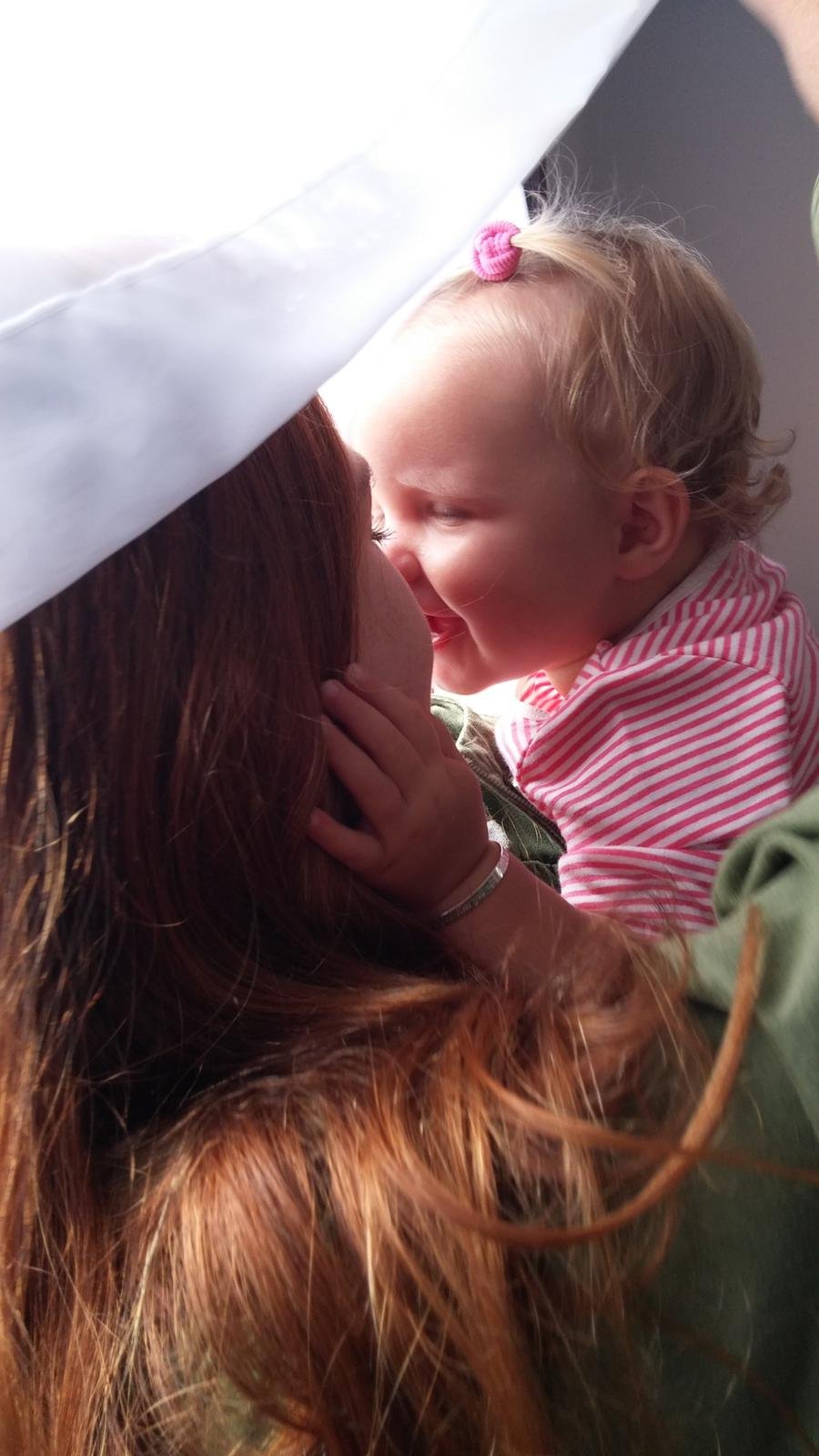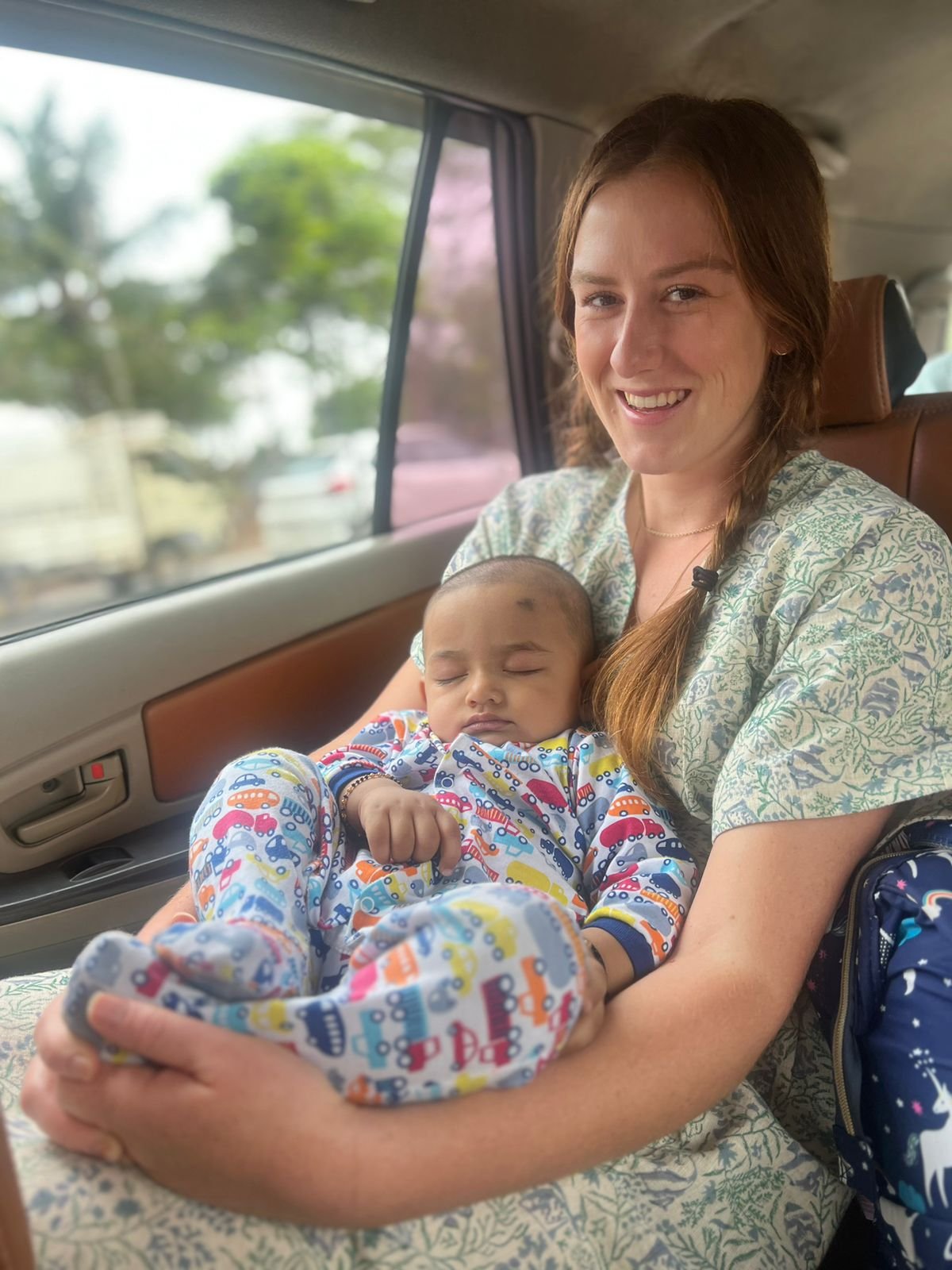Is it unsustainable to have a child?
This seems a strange question to ask as I watch kids gleefully play in the grass. Perhaps I should ask the eldest of the group who I know loves to pick up rubbish on the beach “do you think your parents shouldn’t have had you because of environmental reasons?”
I know that’s brash. But this conversation is going to be hard. I need you to prepare yourself for a rollercoaster; a thought experiment that will push all your buttons and challenge your deepest values no matter who you are.
I also need you to know my personal history with kids before I start to play devils advocate for all sorts of arguments.
I have always seen myself as a mother. I started working in child care at the age of 14. I’ve babysat for hundreds of families, relieved at early childhood centres, run school holiday programmes, and once founded an in-home child care company. Caring for kids makes sense to me. I haven’t been formally taught how to care for them, but my intuition has never failed me when wiping bums and dealing with screaming 8 year olds because how DARE I tell them to put their helmet on. I love spending time with kids and have cared for hundreds, perhaps thousands.
I never thought I’d question my desire to have a child. But I have. It’s normal (and important) to ask these questions when you’ve been married for several years and start noticing your friends are dropping like flies as they become chained to their children’s sacred bedtime routines. And when you add “but I’m a sustainable living educator” into the equation you get a huge messy pot of questions and perspectives that leave you paralysed.
That’s why I’m here. To share my thread of thoughts, discussions, and experiences with the topic “is it unsustainable to have a child?” in efforts to alleviate your paralysis too. This is not a research article or study. This is an ongoing discussion based on my personal experience and conversations with others.
This question is also not like the question “what bamboo toothbrush should I buy?” It’s a deeply subjective and philosophical one. If you disagree and think there is a black and white answer to the question of procreation, this blog post isn’t for you (and I encourage you to get your head out of the sand).
To begin, let’s discuss some of the reasons why some people choose not to have children for environmental reasons.
NOTE: You’ll find quotes below from the book “The Most Important Job in the World” by Gina Rushton. Many of my thoughts and questions are inspired by this book. I highly recommend it.
I won’t have a child in a world that is burning.
This is what I call the ‘selfless’ childless decision. It seems like a fair argument on the surface; why would you want to bring another being into a world that reports natural disasters and corrupt politics on the daily? I understand this perspective wholeheartedly. Not having children would remove the constant angst and upset of making sure they’re safe in such an unruly world. But I also see this fearful perspective as unhelpful and sad. Just like all of my sustainable living messages and encouragements, I inspire people to act out of a space of positivity and joy; to make decisions based on good reasons, not based out of a fearful reaction. Living in a constant state of despair, to the point you’re so terrified of the world’s future that you don’t want to procreate; that isn’t the kind of mindset and attitude I want to prescribe to.
But perhaps I am able to hold onto this perspective because of my privilege. I (currently) don’t have to worry about the air quality my new born baby will breathe. I am not fearful of bush fires and I live in a country with a more stable government than most. Unfortunately this isn’t the situation for others who are affected by the climate crisis daily. While I am grateful for my position, I am also incredibly aware that this may not always be the case. The global food crisis is on everyone’s lips and the United Nations issued a ‘code red for humanity’ in 2021 when their leading scientists released the IPCC report confirming the climate crisis was more serious than ever before.
“When choosing to have a child, we must acknowledge that their world will be much more dangerous than ours.”
I can understand and acknowledge that the world my children will grow up in will be more dangerous than mine, but again, I don’t have lived experience of a ‘burning world’.
“Is the fact of my privilege reason enough to forge on?” Is “I want to and I can” a valid reason for me to have a kid?
As a side note, I find this ‘selfless’ perspective intriguing as many people who choose not to have children for personal reasons (e.g. loving their sleep and spare time) are often called ‘selfish’. I’d like to sit those two people down in a room and listen to their conversation. Is it selfish to not have children because your unborn children have the right to exist and you were put on this planet to procreate? Or is it selfless to refrain from having children because their existence could be grim and painful?
Perhaps these two sides aren’t different to each other at all. I bet that a large percentage of people who say they don’t want to have kids for environmental reasons are telling us what we want to hear. They get a slice of eco virtue from saying it to their friends on Facebook, but deep down they’re simply not prepared to give up their luxuries and they’re afraid of announcing this online. To hang their hat on the environmental stance is the most convenient way to do it because unfortunately society isn’t great at accepting that people can choose to be childfree for whatever reason they freaking want (I admire Danni for leading the charge in childfree living!).
I don’t want to increase my carbon footprint.
Many of us have become obsessed with measuring our carbon footprint, but for good reason. A carbon footprint measures the amount of greenhouse gases that are emitted into the atmosphere because of the things we do (e.g. travelling, eating food that was grown and transported). These greenhouse gases are trapped in our atmosphere and contribute to the warming of our climate, hence everyone wanting to reduce and/or offset their carbon footprint. Producing another human who needs to eat, travel, and consume resources creates more opportunity for carbon emissions to be released into our atmosphere.
I’m all for reducing your carbon footprint, but it feels strange reading statements like having one child adds 9,441 tonnes of carbon dioxide to the legacy of each parent. Reading this makes me feel like a robot. I realise we cannot raise children with the expectations that they will all be the world’s next Greta Thunberg therefore offsetting the emissions of the entire family (plus some) by communicating global messages that inspire a vast reduction in emissions. But a person’s impact on the world should be not measured solely in a carbon dioxide statistic. We must remember that while reducing your carbon footprint is a great thing to do, it’s not the sole impact of a human.
The term ‘carbon footprint’ was founded by the oil and gas company BP. BP launched an advertising campaign to encourage people to assess their carbon footprint while being one of the world’s most prolific polluters. Should we really stifle our urge to have children because of the potential carbon emissions caused by one extra person? Or should we focus on the potential good of that person instead? That leads me to the overpopulation debate…
The world is overpopulated; I will not add to it.
There are all sorts of predictions out there, the most common being that we don’t have enough resources on the planet to support more than 10 billion people; scientists predict that we’ll hit that number by the end of this century. The population argument holds weight but falls over when you compare the emissions of the average family in somewhere like America compared to families in places like India. Those with more wealth are generally responsible for emitting more carbon emissions, making the case that it’s less about an extra person existing and more about the way they live. And when I bring up the overpopulation debate I’m also met with rebuttal, including concerns of an aging population which has implications that wider affect the future of family care as well as issues of intergenerational relations, employment, living arrangements and attitudes. You can find evidence to support both sides of the discussion, depending on where you choose to look!
Moving on from the main reasons why people are choosing not to have children (I am sure there are many more reasons too!), people are choosing to have children for environmental reasons.
Children are joy.
“A baby is like the beginning of all things: wonder, hope a dream of possibilities. In a world that is cutting down its trees to build highways, losing its earth to concrete, babies are almost the only remaining link in nature, with the natural world of living things from which we spring.” – Eda J. Leshan.
This quote has stuck with me ever since I first read it so many years ago. It affirms the uncontrollable smile I get when I watch a baby laugh and the joy I find from spending time with my nieces. Children are a refreshing antidote to doom scrolling and negative news stories. Children represent hope simply by being present. But is it fair to rely on our young to generate those feelings? I have no clue of the answer to that question, but just like it’s unhelpful for a couple to have a child as a means to fixing their relationship, having a child to help you through eco anxiety sounds just as messed up and unhelpful.
Children inspire us to be more sustainable.
The impending birth of a child is often a catalyst for incredible books, podcasts, and research. The book Eating Animals by Jonathan Safran Foer is a great example of this. The birth of a child can be the first time someone considers what food they’re eating, where it came from, and how ethically it was sourced; this is why Jonathan wrote Eating Animals and his book has resulted in thousands of people reducing their meat consumption. For many, having a baby is their wake up moment. After unconsciously going about their lives, they suddenly realise the impact they have on other people and the environment and develop a fresh desire to preserve the planet for their children’s future. I’m not saying this is always the outcome, but it’s a common journey for many parents.
After all this back and forth, it’s probably clear where I sit on the sustainable children argument, but it’s not always easy to support my decision in the face of radical environmentalists.
Should I treat my desire to have a child like I treat my urge to grab the plastic coated chips in the supermarket? Ignore it, fight it, and realise that it’s more selfish than anything else? Should I acknowledge that the negative plastic impact drastically outweighs the moment of joy I’ll get from the chips? Does the negative impact of another human being on earth take priority over my deep bodily urge to have a child? Should I be ignoring both chip and child urges and push forward into my best sustainable self?
But I am that weirdo who wants to stroke all the pregnant bellies (I don’t by the way, only with permission from close friends). As a sustainability educator and inspirer, it would be so much easier for me if I didn’t have this raging maternal instinct in me. Yet I won’t pretend to be something I am not.
I hope to have my own children one day, whatever that may look like. I think living in a state of fear for the future of our planet (and therefore choosing not to have a kid) is a valid feeling, but not a feeling I relate to or wish upon anyone. Over population may be an issue, but growth focused systems, capitalism, and greed have a lot to say for themselves too. I will not let our climate crisis rob me of joy and my innate desire to procreate. Choosing joy is far more productive for our planet and people.
I’ll let you decide how to approach your own decision to procreate. My only hope is that even if you don’t understand them, you respect what others choose to do too.
Resources:
Cafaro, P. (2012b). Climate ethics and population policy. Wiley Interdisciplinary Reviews: Climate Change, 3(1), 45–61. https://doi.org/10.1002/wcc.153
Tinker, A. (2002). The social implications of an ageing population. Mechanisms of Ageing and Development, 123(7), 729–735. https://doi.org/10.1016/s0047-6374(01)00418-3
http://www.isec.ac.in/PB%2053%20-%20Household%20Carbon%20Footprint%20of%20India_2nd%20draft.pdf
https://css.umich.edu/publications/factsheets/sustainability-indicators/carbon-footprint-factsheet




